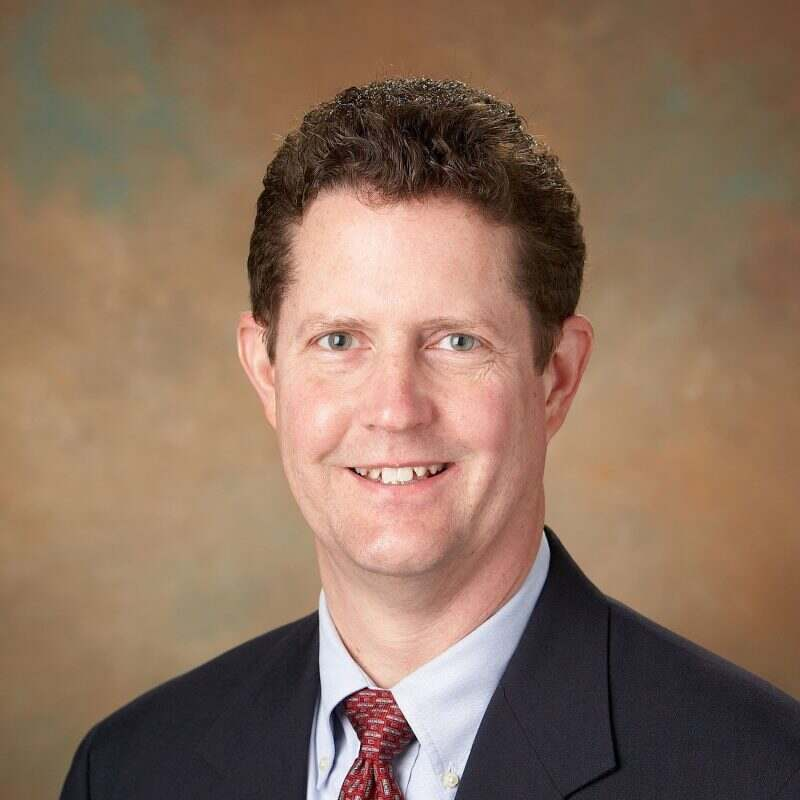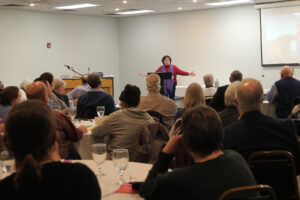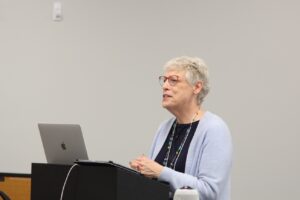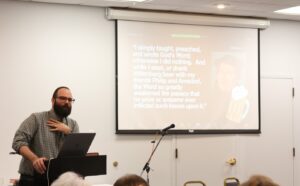Can I Get a Witness? Here I Stand
Co-missioners,
Our conference in Belleville, Illinois last month was graced by the presence of several people who were attending their first-ever Crossings event. Among them was Dr. George C. Heider, a Senior Research Professor of Theology at Valparaiso University. You’ll recognize his name, perhaps. Thanks to an invitation—some gentle arm-twisting?—from Bruce Modahl, a good friend, George began contributing to Thursday Theology fifteen months ago. You may have caught his review this past December of David Bentley Hart’s Atheist Delusions.
Today we hear from George again—and again by Bruce’s invitation—as he reflects on what he heard and witnessed at the recent conference. The observations of an astute “first-timer” are invariably of interest and value, all the more when the observer in question has deep experience with events held by similar groups in other venues. This is certainly the case here. Crossings veterans in particular would do well to read closely. It will leave you thanking God, we think.
We introduced Dr. Heider to you when he first wrote for us. A reminder here that he is an Old Testament scholar by training who spent half his career in academic administration. This included a stint as president of the LCMS-affiliated Concordia University Chicago. He joined Valparaiso’s theological faculty in 2004, retiring from active service in 2019.
Peace and Joy,
The Crossings Community
__________________________________________________________________
Can I Get a Witness? Here I Stand
Invited Reflections on the 2023 Crossings Conference
at Our Lady of the Snows Conference Center, Belleville, Illinois
by George C. Heider, Ph.D.
Right at five years ago, I wrote a column for Valparaiso University’s journal, The Cresset, on the five hundredth anniversary of the Reformation and, by coincidence, the fiftieth anniversary of my own confirmation. The article appeared in a Cresset series entitled, “Being Lutheran,” so I was playing with words a bit by titling it, “Reflections on Half a Century of Being Lutheran.” My tone was not one of despair, but I tended to the wistful. Above all, I expressed a painful longing over what I saw then as the loss of the great centrist vision of American Lutheranism in which I was formed: “I do see as tragic the dramatic decrease in interaction of nearly any sort across the Lutheran spectrum. Indeed worse, my sense is that we are drifting apart: I have often depicted my own sensation as a Lutheran these days as like unto a boy with a foot on the dock and a foot on a boat, while the boat is pulling away.” From my fallible perspective, the LCMS was becoming increasingly hierarchical and sectarian, while the ELCA was being swept along by progressive political and theological causes du jour.
This was the mindset that I took with me to the conference of The Crossings Community, held near St. Louis in January a month ago under the theme, “The Promising Community: Can I Get a Witness?” In some respects, I was venturing where I did not belong. Crossings, after all, was started by Drs. Robert Bertram and Edward Schroeder, two late professors of the former faculty majority of Concordia Seminary, St. Louis, who had gone on to found Christ Seminary—Seminex. I, on the other hand, had attended and graduated from Concordia after their departure.
Even so I quickly learned that one’s personal history was quite beside the point of the Crossings gathering. No one made an issue of my alma mater, nor of the twenty-eight years that I spent as a pastor in The Lutheran Church—Missouri Synod before moving to the ELCA roster in 2007. Indeed, I eventually learned that clergy and laity of all manner of Lutheran stripes were present, from the ELCA and LCMS to the NALC (the church body formed by dissenters from the 2009 “sexuality decisions” of the ELCA). It was the most pan-Lutheran assembly that I had shared in since my years two decades ago as an LCMS university president participating in the oldest inter-Lutheran organization in the US, the Lutheran Educational Conference of North America.
An added bonus was the opportunity to reconnect with four classmates from my baccalaureate alma mater, Concordia Senior College in Fort Wayne, Indiana, including three whom I had not seen in the nearly fifty years since graduation. (I have always considered that class to be my true cohort, as thereafter we scattered among seminaries, chiefly the two in St. Louis, while some of our best pursued other vocations.)
Given the history of Crossings, the conference was naturally dominated by ELCA presenters. But within that reality lay the most hopeful presentation in terms of my aforementioned concern for the “great centrist vision” that I have heard in many a year. Presiding Bishop Elizabeth Eaton of the ELCA spoke on her understanding of the essential heart of the Lutheran Christian faith and the church’s Gospel-centered mission. As I told her afterwards, I heard nothing in anything that she said that could be contested by a president of the LCMS. Much was in common with the famous evening lectures by C. F. W. Walther on the proper distinction of Law and Gospel. Given my self-perception on the Lutheran spectrum, I could offer no higher praise. Bishop Eaton even contested the emphasis of some ELCA pastors on the need for a “prophetic stance” at the risk of downplaying its moral warrant in the incarnation, life, death, and resurrection of Jesus. (I was also impressed that an ELCA pastor pushed back on this point to her face and that the two of them then sought civilly to clarify each other’s views.)
While Bp. Eaton’s presentation was the conference’s highlight in my eyes, it was by no means the sole moment that impressed me positively. Another high point was the presentation by Dr. Mary Hinkle Shore, formerly dean of the ELCA’s Lutheran Theological Southern Seminary. In the course of her remarks, Dr. Shore explicated the Goal/Malady/Means homiletical hermeneutic devised by Prof. Richard R. Caemmerer, Sr., of Concordia, St. Louis (and later Seminex) and then taught to a double-generation of LCMS seminarians. This invited comparison and contrast with the six-step diagnosis/prognosis model that is dominant in the Crossings Community, thanks to its development by the two founders. The latter “Crossings Method” was winsomely modeled by one of my former students at Valparaiso, Pr. Nathan Hall, using the John 11 account of the raising of Lazarus.
The upshot of juxtaposing the two presentations for me was a reminder of how important it is to keep exegetical methodologies in their proper place as means to the end of the proper distinction between Law and Gospel and their proper proclamation. I note immediately that the presenters did this well. I also found the implicit conversation between the two approaches to be a marvelous exhibition of exactly the kind of dialog that I see at the core of my life’s calling: to further the interchange between those called to the academy and to the church. (If anything, I think the conference would have benefitted from a more explicit comparison of Caemmerer and Bertram/Schroeder, perhaps on a single text.)
Finally (for now), I was much taken with a presentation by a pastor from Cambridge, Massachusetts, who serves a small (30 in worship most Sundays) congregation there. If Tip O’Neill (also of that Commonwealth) was right that “all politics is local,” Pr. Robin Lütjohann made much the same point with respect to the application of Law and Gospel in specific pastoral contexts. We all—pastors and laity—have enough in common such that “mutual conversation and consolation” is of veritably sacramental value among us, yet, as the salesmen on the train at the outset of “The Music Man” put it: “You gotta know the territory.”
I hasten to add that nothing in the foregoing should be heard as unappreciative of the efforts of the other presenters, nor of those who planned and led conference worship. The examples above are illustrative, not comprehensive, simply representing the presentations that stand out most in my mind at the moment. Moreover, as might have been anticipated, among the most valuable hours were those spent over wine and cheese in the evenings. In those times of fellowship, I detected very little defensiveness as hard topics were mooted, like the struggles of all Lutheran church bodies to be and become more outward-focused. Neither defeatism nor an oblivious whistling past the institutional graveyard was much in evidence.
Was the conference perfect? No: the facilities betrayed their age (and the conference will need to relocate in the future, thanks to forthcoming renovations), and even with a first-timer’s discount, the price challenged this recent retiree. Still, as my first post-pandemic, in-person, academic gathering, it was both a welcome connection with colleagues of a shared passion and, above all, a tantalizing hint that the Lutheran Christian articulation of the Gospel as “justification by grace through faith in Christ” may yet prove a common charism around which we, the lesser successors of the Reformer, can pursue our callings.
Thursday Theology: that the benefits of Christ be put to use
A publication of the Crossings Community



